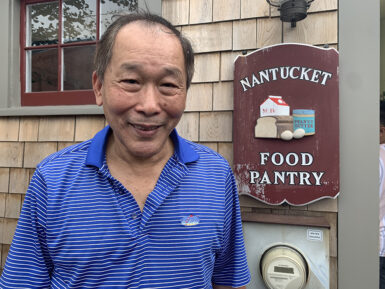The critical need for food where we least expect it
Nantucket, Home of soft sands, high end homes. And food insecurity?
Part One: The critical need for food where we least expect it.

The idea of a Food Pantry on Nantucket seems almost like an oxymoron. The island’s sandy beaches, iconic gray cottages, and low-key yet world-class dining and shopping captivate upscale vacationers and well-heeled residents. It’s a destination with more grace than glitz. But, as Lama Yeshe Palmo, the manager of the Nantucket Food Pantry, says, “Who do you think washes the dishes, cleans the homes, cuts the grass, and washes the sheets in those fine homes and hotel rooms?”
The problem isn’t unique to Nantucket or its nearby sister island, Martha’s Vineyard. Food insecurity is everywhere, and meeting the need is complicated in a seasonal resort destination where many hands are required to work at low wages in the hospitality industry.
It’s hard to imagine food insecurity in this place of plenty, especially during Nantucket’s summer season. According to Yeshe Palmo, when the island is peak busy with incoming tourists, demand for food assistance usually drops in a typical year.
But not this year. This summer, demand for food has been rising each week.

A year or more of pandemic lockdown depleted everyone’s resources. As a result, neither the workers nor some of their employers can make ends meet. It’s an acute problem for seasonal workers, but food insecurity this year is no less problematic for year-round island residents who have burned through their resources and must rely on social security, disability, SNAP benefits, and the kindness of strangers to get by.
In fact, in Nantucket, 15% of the island’s year-round residents require food assistance. It’s a precarious perch for blue-collar workers on the island. They are crucial to the economy, but no one feels secure between the high rents, the seasonal employment, and the aftermath of the lockdown.
Nantucket, as we have come to understand, is a highly stratified two-tiered economy, with a permanent class of haves and have-nots that doesn’t disappear when the winter turns cold. It’s not exactly a secret that there is food insecurity on the island.
It is just so easy to miss.
